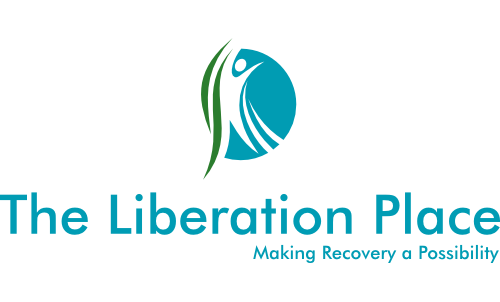Planning Ahead to Build Mastery
The integration of DBT and Schema Therapy, really comes into play when trying to change the rigidity we hold for behavioural responses to a particular emotional experience. As I’ve mentioned before, from a DBT perspective, every emotional experience activates a behavioural response that’s either an innate primal reaction, or a learned behaviour that we’ve picked up along the way. It’s usually the case that these automatic behaviours play out at a subconscious level. Most of the time we have little to no awareness for the fact that the behaviour is probably tied to some sort of childhood experience that’s playing out as a re-enactment right now. When we know what dominant schema we hold in our personality, which is something we can learn through mindful awareness and journalling, we can use the skill of planning ahead to Build Mastery to reduce the emotional impact these childhood stories have on our personality system.
This particular skill involves paying attention to things that happened in the past, situations or circumstances that activated an overwhelming emotional experience, that then triggered an ineffective behavioural response within our personality system. We do this for the specific purpose of learning. When we pay attention to these uncomfortable and difficult feelings, we can then use the information we gather to increase our ability to handle these emotions when they get activated again. Planning Ahead to Build Mastery means figuring out which situations are likely to cause us trouble in the near future, and then using the other skills of DBT and Schema Therapy to identify a pattern in behaviour from the past. We are not only planning ahead for how we can cope with expected emotional difficulties, but also visualizing being in the situation, and practicing how we will act effectively, staying in line with our true core values and beliefs.
“Planning Ahead to Build Mastery gives us the ability to work with these stories, not to remove them completely from our system, as this would be an extremely difficult thing to do.”
~Steven Morris
The key component of this exercise is to understand that it is not the situation we are trying to build mastery for, it is the emotional experience. Situations can change, people can do random and unexpected things, so trying to master how to deal with what might happen in the external world is a challenging, if not an impossible thing to do. However, our internal, emotional experiences, are usually quite consistent, particularly when it comes to difficult, and uncomfortable situations. In general, in my experience, our ineffective behavioural responses tend to be driven by fear, and usually it’s a fear of experiencing one of the big 4 emotions, sadness, loneliness, guilt, and shame.
DBT teaches us that there’s a large amount of research proving that we can learn new skills simply by imagining situations in our mind and rehearsing our behavioural responses over and over again. This creates a new “muscle memory” that’s tied to the emotional experience itself, which is then repeatable in the external world of actuality. This is true for all sorts of skills. For example, in sports like tennis, a player who is trying to plan ahead for an important game can improve their ability to play in high pressure situations by practicing the mental process involved when serving on big important points, or simulating their internal self talk when resting in between games. By rehearsing these situations in their minds, over and over again, they increase the probability that they will cope with the actual emotional experience in a successful and effective way.
"Our internal, emotional experiences, are usually quite consistent, particularly when it comes to difficult, and uncomfortable situations."
~Steven Morris RP.
We can also apply this philosophy to practicing interpersonal skills. For example, we can improve our ability to have conversations when making amends with others by rehearsing the way these conversations might go in our minds, effectively teaching our parts how to cope with the different emotional experiences that are possible when actually having the conversation itself. Sometimes it can be helpful to hear this skill presented in a situation that might be relatable. So, next I’m going to tell you a story. This story is a simple, single example of what coping ahead might look like that I’ve taken directly from the DBT Skills Training manual and adapted to fit the concepts of Schema Therapy and the multiplistic personality perspective of doing this type of work. Take some time to listen, and see if it gives you some clarity on the ways you can use this skill to your benefit in your own personal circumstances. Imagine if you can the following story:
"Joe is getting ready to give a speech in front of a large crowd, he’s done this sort of thing before, and had a couple of bad experiences where he blanked out in the past. He has the speech already written out to help him with this, but he’s beginning to feel a cold coming into his system, and he notices that there is a part of him that is afraid his voice might give out, or he might slide into the onset of an uncontrollable coughing fit right in the middle of his speech. He recognizes that the dominant emotion he would struggle with in this situation is fear. He uses the downward arrow exercise to explore this deeper and finds that its routed in a fear of the embarrassment or shame he will experience should he not have the skills to cope with this situation if it plays out the way he is projecting it too. Joe recognizes that his usual behavioural response in this situation would be to cancel the whole thing, or not show up on the night, and hope nobody noticed he wasn’t there. At the same time, he also recognizes that this isn’t an effective way of dealing with the situation, so to plan ahead, he uses his mindfulness skills to imagine different scenarios.
First, he pictures himself giving the speech with absolutely no troubles. He completes his presentation and rehearses what it will be like to stand in front of the crowd as they acknowledge its completion. This is helpful, but he notices that there is still a part of him that’s anxious. Next, he practices in his mind his worst-case scenario. In this visualization, he is walking out on stage with a glass of water in his hand, bending over, and putting it on the floor before he starts. Then he imagines speaking, having his voice go out suddenly and beginning to cough. So he practices pausing to bend over, gather his wits together, picking up his glass of water and taking a sip, composing himself, and then continuing with his speech when he feels ready. Finally, Joe explores the third scenario, the one in which he is challenged with his voice, or a slight tickle in his throat, but he’s still able to make it through with just some minor stumbles, but nothing to catastrophic. Joe documents each of these situations in detail and continues to rehearse all three possibilities in his mindful practice throughout the build up to the presentation. As a result, his parts have an idea of what to do in the different situations connected to his emotional experience of fear, shame, and embarrassment, and his system is well prepared for giving the speech."
"We can improve our ability to have conversations when making amends with others by rehearsing the way these conversations might go in our minds, effectively teaching our parts how to cope with the different emotional experiences."
~Steven Morris RP.
This is a brief example of how we can use Planning Ahead to Build Mastery to develop our ability to cope in different and effective ways. When combining DBT and Schema Therapy, Planning Ahead to Build Mastery is an essential skill for changing the rigidity we have to the behavioural response for the stories connected to the dominant Schema in our system. These are the stories that are directly responsible for activating the different parts of our personality that we are trying to understand, and ultimately re-educate. Planning Ahead to Build Mastery gives us the ability to work with these stories, not to remove them completely from our system, as this would be an extremely difficult thing to do. Instead, we use this skill to build Mastery for the emotional experience triggered by the childhood story so we can teach the activated parts that this story isn’t happening right now, or if it is, how to cope with it in a healthy and effective way.
In the PDF at the bottom of the website page connected to this video, there is a worksheet that goes over the way to develop this skill for your own individual needs. Planning Ahead to Build Mastery is not about remembering the past experience, it’s about re-experiencing it so we can recreate the emotional response we had at that time. If we don’t recreate the emotional response we wont develop mastery for the emotional experience, so pay attention to the use of your senses when completing this activity.
Download the PDF of this page
Follow us on Social Media





